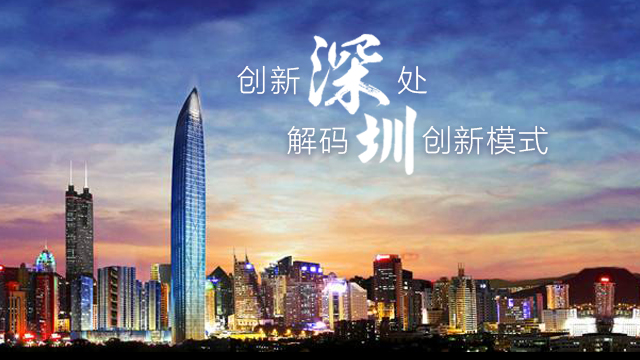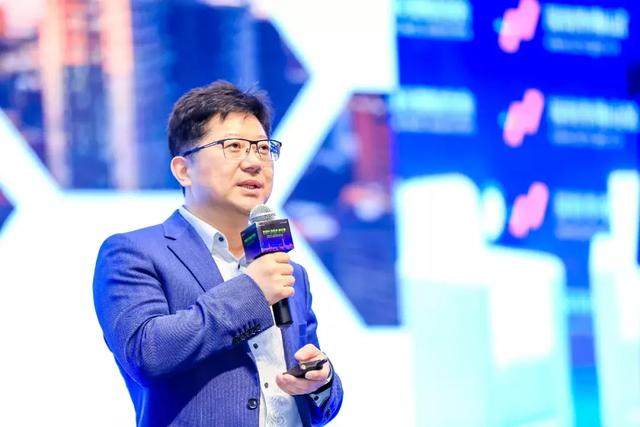2021.03.24 National Business Daily 浏览次数:
Zhang Wei said that Shenzhen has formed an "Iron Triangle" of "intensiveness"-capital intensive, talent and technologies intensive and large sci-tech enterprises intensive. The three aspects have constituted a self-powered eco-system in Shenzhen.
On August 26, 1980, Shenzhen became one of China's first four Special Economic Zones open to the outside world in China. Today, it has grown to be an international metropolis which has attracted the world's attention and created numerous miracles.

This year marks the 40th anniversary of the establishment of the Shenzhen Special Economic Zone. While looking back on the last four decades of Shenzhen, one may raise the following questions: What are the reasons for Shenzhen's success? What can other cities in China learn from Shenzhen? How can Shenzhen do better in the future?
To answer these questions, National Business Daily had an interview with Zhang Wei, Chairman of CoStone Capital. Co-Stone Capital is a large PE institution, managing over 80 investment funds ranging from angels, VCs, PEs, buyouts, private placements, to private securities, with an AUM of more than ¥50b. As the co-founder of CoStone Capital, Zhang Wei offered us his insights on Shenzhen's development in detail.
Shenzhen's success owes to three unique advantages
Zhan Wei came to Shenzhen in 1994 after resigning from the government. "When I first came to Shenzhen, it was easy to get a job and I felt real freedom and liberation," said Zhan Wei. Among the people he met in Shenzhen, two types are typical: the divorced persons and the unrecognised talent.
"Many of my colleagues and neighbours were divorced. They were rebellious because few people had the courage to get a divorce in the early 1990s. Most people of my generation would not break a marriage even if they felt dissatisfied. I also met a lot of people whose talents were not recognized. Many of them left their powerful positions in the government and began to start a business. These two sorts of people were brave enough to jump out of their comfort zone. They were the first to throw themselves into the typical market economy in Shenzhen, a city with both geographical and policy advantages, and they became such a great source of energy."

Shenzhen has created countless miracles. It is the cradle of many of China's best private enterprises, such as Huawei, Tencent, Ping An Insurance, DJI, and Mindray Bio-medical. Shenzhen's success lies in many aspects. In Zhang Wei's opinion, it owes to three unique advantages enjoyed by Shenzhen:
First, Shenzhen has a service-oriented government and a sound business environment. The government is transparent and efficient, and the businesses act in a pragmatic manner, as put by Zhang Wei. The social climate here differs from other cities in China. It leads to a virtuous cycle in which the government is willing to offer help to the enterprises and the latter thus have a good development, and vice versa.
Second, Shenzhen is highly market-oriented. For example, as of August 20, there were 315 companies listed on the A-share market in Shenzhen, and the number of private companies accounted for 71.4% of all the listed companies in Shenzhen, while the proportions of Beijing and Shanghai were much smaller, with only 55.8% and 48.3% respectively.
From an investor's standpoint, Zhan Wei also offered an example of Royole. As he said, Royole has grown up from a totally marketed-based environment. All its financing was market-based before the valuation hit ¥20b, which shows that Shenzhen and investment institutions are quite supportive of long-term key & core technology entrepreneurship.
Third, Shenzhen is an open and inclusive city of immigration. "Shenzhen took the lead in the reform and opening-up and has attracted immigrants from all over the country. It is a city of immigration and inclusiveness in the true sense. The potential of Shenzhen will remain great as long as people continue to talk of Shenzhen as a Chinese version of Silicon Valley instead of vice versa," Zhang Wei concluded.
Shenzhen should continue to strengthen its "Iron Triangle"
Zhang Wei said that Shenzhen has formed an "Iron Triangle" of "intensiveness"-capital intensive, talent and technologies intensive and large sci-tech enterprises intensive. The three aspects have constituted a self-powered eco-system in Shenzhen.
When talking about Shenzhen's future development, Zhang Wei mentioned the above "Iron Triangle" repeatedly and emphasized that Shenzhen should continue to strengthen it.
One of the methods is to attract more key & core technology enterprises to Shenzhen. These enterprises, especially the giant ones, represent the most advanced productive force. An eco-system with them at the centre is expected to take shape.

In addition, the government should improve the operation of guiding funds. Shenzhen used to launch a ¥100b government-guided fund, which has attracted excellent GPs and asset managers from across the country to Shenzhen. It has also brought in a large amount of capital from other regions, making Shenzhen a cornucopia of capital.
Another measure is providing preferential policies. "If plenty of outstanding enterprises have been attracted to Shenzhen, then will come massive capital, and finally Shenzhen will turn into a city abundant in talent and technologies. Therefore, Shenzhen should continue to strengthen the 'Iron Triangle' with supportive policies. The government should first put in place more open talent policies to gather high-quality human capital and then introduce preferential ones to get the best large tech enterprises to set up headerquarters in Shenzhen,' as explained by Zhang Wei.
Zhang Wei also reminded not to miss the Unicorns. He said that SenseTime was just an example. A few years ago, Shenzhen didn't realize that SenseTime would one day grow into an elephant and lost it to Shanghai at last. "We should learn from this lesson. Shenzhen must be far-sighted to pick out and keep these good start-ups. The government should offer them great support in office rent and tax."
As the manager of an investment institution, Zhang Wei reckons that PE can serve as a catalyst for the development of enterprises in Shenzhen. China's PE institutions still lag behind foreign ones such as Blackstone, Carlyle and KKR. However, with the rise of the economy and the industrial transformation, there will emerge some asset management institutions with global influence in China, which will in turn contribute to a better development of Chinese enterprises.
"Royole's example tells us what role investment institutions can play. It is these active market-based investment institutions that have enabled the high-tech enterprises to grow and get strong. They offer the enterprises precious capital and help them survive from numerous long-term processes of R&D, trial production and trial operation. We investors value two qualities of the enterprises most. The first one is the strategic focus. Such enterprises, with total concentration on their main business, will not move into other fields easily. No matter how the macro environment changes, they will only be dedicated to R&D and system building. Huawei is just a representative of them. The second is the entrepreneurial spirit. We had been advocating the entrepreneurial spirit even before it was incorporated into the government documents. Shenzhen boasts a great many entrepreneurs with such quality, including Ren Zhengfei, Pony Ma, Ma Mingzhe, Wang Shi, Wang Tao of DJI, Xu Hang and Li Xiting of Mindray Bio-medical," Zhang Wei said.
Rewritten by: Jiang Xiaomei, Edited by: Du Zhixin, Wei Yiyi
几年前,我曾提出一个问题:中国经济繁荣的根基是什么?
我认为是“重商主义(这里借指市场经济)”与“儒家文化”这两个因素的核聚变,只要我们的体制大门开一条小小的缝,中国老百姓与生俱来的聪明、勤奋、奋不顾身,几千年穷怕了的物质主义和实用主义,就能创造一个新天地。
2021年,我见到一个新能源公司的董事长,谈及张维迎所言“直到20世纪70年代,绝大部分中国人的生活水平不比唐宋时期好多少”,他说这是真的,1978年他没有见过电,全家所有家当是一个小木柜。1979年,我的好朋友,一个咨询集团的董事长考上了大学,报到前他勤工俭学,骑六七十里山路卖冰棍,山里的一户人家,用几个鸡蛋和他换了一根,全家人排成一排每个人吮吸一囗。
在改革开放前,这是中国普遍的景象。而我们这一两代人,在改革开放后,怀抱着对美好生活的向往,创造了人类发展史上的奇迹。40多年过去,我们看到,轻舟已过万重山。伟大的中国工业革命,怎么赞扬也不为过!
而另一方面,中国用几十年的时间,走完了发达国家几百年的路,这也就注定了,我们上山的道路,更加的陡峭。同时,中国作为一个有几千年历史的古国,其发展正常就是“孔雀东南飞,五里一徘徊”。作为一个新兴经济体,我们讲究的是实用主义,中国的政策也是因时、因势而变的。
因此,并非一些简单的因素就能够遏制中国的增长,只要不出现战争这样会扰乱经济进程的极端因素,只要中国依然坚定地支持民营经济发展,保护企业家精神,中国经济的前进步伐就是坚定不移的。
如果认同这一点,那么无论是短期的政策、市场变化还是长期的中美对抗,都不会让我们产生太大的焦虑。
具体从我们做企业和做投资来讲,也无需过度悲观。“沉舟侧畔千帆过,病树前头万木春”,在一些行业和企业衰落的同时,也永远有一些行业和企业在崛起。
以半导体产业为例,我们不必纠结于半导体仿佛一年紧缺、一年过剩,因为问题的核心不是这个。问题的核心是第四次工业革命离不开半导体技术,而中美对峙、科技封锁,将进一步迫使中国在所有科技领域谋求自主可控,进一步迫使中国以举国体制解决创新问题。同时,当一项投资吻合科技进步趋势和政策引导的双重影响时,其估值亦将脱离传统财务模型。这些才是中国硬科技投资的重要的底层逻辑。
看待资本市场,我们更不必计较一时的股价波动。回顾历史,在资本市场发生剧烈调整时,那些优质的企业往往也会出现大幅下跌,但不同的是,优秀企业不仅能收复失地,还能再攀高峰。因此,我们继续坚定地布局那些有核心技术、有企业家精神的企业。而从我们的投资经历来看,那些有企业家精神的企业最终都带领我们穿越了周期,并获得了异乎寻常的回报。
莫愁前路无知己,天下谁人不识君!